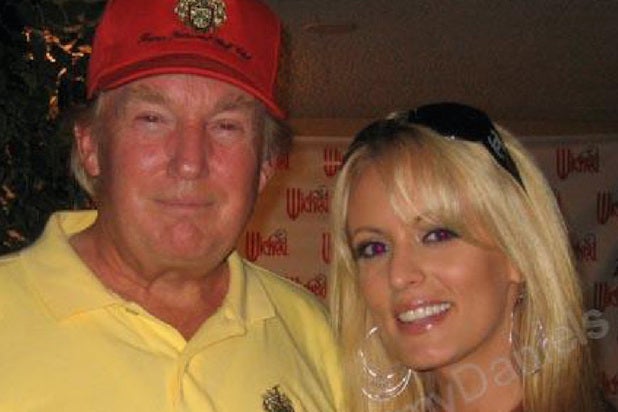Alicia Hart has worked as an emergency physician in South Texas for ten years, and has seen a stream of migrant children from Guatemala and Honduras come to the U.S. fleeing gang violence. In the past, most of the kids in her care were teen-agers who had crossed the border unaccompanied and ended up in government detention facilities. Many of them were fifteen, sixteen, or seventeen years old and seemed capable of living away from their families. Most came to the emergency room for common childhood complaints, such as viral illnesses, asthma, and allergies. “Some had sad stories from their home countries, but they seemed relieved to be here,” Hart said. “It seemed like most were just waiting to be sent to relatives in the U.S.”
But then the Trump Administration began to enforce a “zero tolerance” approach toward migrants arriving at the U.S.-Mexico border, a move that included separating parents from their children. (The President
apparently revoked the policy on Wednesday.)
The number of young children in detention facilities rose sharply. “The population I’ve been starting to see is younger, and it scares me,” Hart said. “These are little people, little babies. And they are ill-equipped to fend for themselves. They’re so totally traumatized. They don’t cry like normal kids. They don’t interact like normal kids.”
Last week, on a day when Hart was on duty, the charge nurse called her over to examine a child who needed clearance for psychiatric treatment. He was eight years old, and he sat hunched in a recliner chair next to the nurses’ station. Four men, who had brought him from an unidentified holding facility for migrant children, hovered around him. Hart spoke with me by phone from her home, in South Texas, on Sunday night and again on Wednesday night, about her experience with the boy and her concerns for his future. Her account has been condensed and edited.
“The guardians didn’t step more than two feet away from the kid. One of the four was an armed police officer. I thought, Does it take an army of adult men to take care of one elementary schooler? I walked over to the boy, crouched down, and asked him, in Spanish, ‘How do you feel?’ ‘Sad,’ he said.
“The boy had been in custody for over a month. One of his guardians told me that he had been ‘acting out’ and threatening to harm himself, by jumping from his bed. This man told me, ‘I’m his clinician,’ but he was definitely not a doctor. I don’t know if he’s a social worker, a medical assistant, a housekeeper. I have no clue. But he obviously had been granted some sort of authority in regard to assessing children and determining what their needs are. He wouldn’t provide basic background. I couldn’t find out any information because he would say, ‘I’m not at liberty to tell you that’ and ‘You don’t need to know that,’ even though a lot of my questions were relevant to taking care of the child. I was asking things like ‘Where are his parents?’
“One of the men told me that the boy had crossed the border alone, but I didn’t know if I was getting the true story—if he had been separated from his mother and father before or after he entered the country. The man who called himself a clinician also told me that they knew where his parents were, and one of them was in the United States. I didn’t know if that meant in custody or not.
“What bothers me is, if you know where this parent is, why can we not contact them for consent? They aren’t even made aware if their child has an injury, if their child is having a breakdown. These are people who were desperate for a better life and crossed the border. Why are their parental rights being taken away?
“I asked the clinician, ‘When is this child going to be reunited with his parents?’ He was evasive. First it was ‘Oh, well, we don’t know.’ And then it was
‘Well, he won’t be reunited with his parents unless he behaves.’ The lack of compassion was scary, and it didn’t seem like there was really a plan.
“This boy seemed devastated—quiet and withdrawn. He barely spoke. I asked if he needed a hug. I kneeled down in front of the recliner, and this kid just threw himself into my arms and didn’t let go. He cried and I cried. And to think he’s been in a facility for a month without a hug, away from his parents, and scared, and not knowing when he’ll see them again or if he’ll see them again.
While I held him, I heard the men standing behind me muttering that I was ‘rewarding his bad behavior.’ Thankfully, it was in English, so I don’t think the boy understood what they were saying, but it just revealed their attitudes toward these kids.
“I referred the boy to an inpatient psychiatric unit for treatment. I worry that he may be treated with psychiatric drugs like antipsychotics, also without the consent of his parents. But I still believe that psychiatric hospitalization is our best option. If we get these kids to the psychiatrists, at least they’re in a protective unit, away from these detention facilities, and they will get some of the counselling they need, because
they’ve been through a tremendous trauma. The idea of pulling a child out of a parent’s arms, or identifying a parent but still keeping them separate—it isn’t right. Just deep in your viscera, you say, ‘This is wrong.’”


